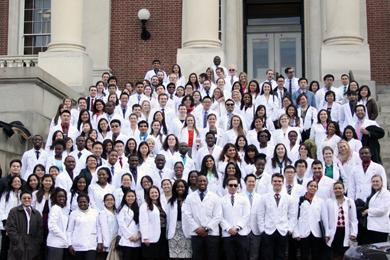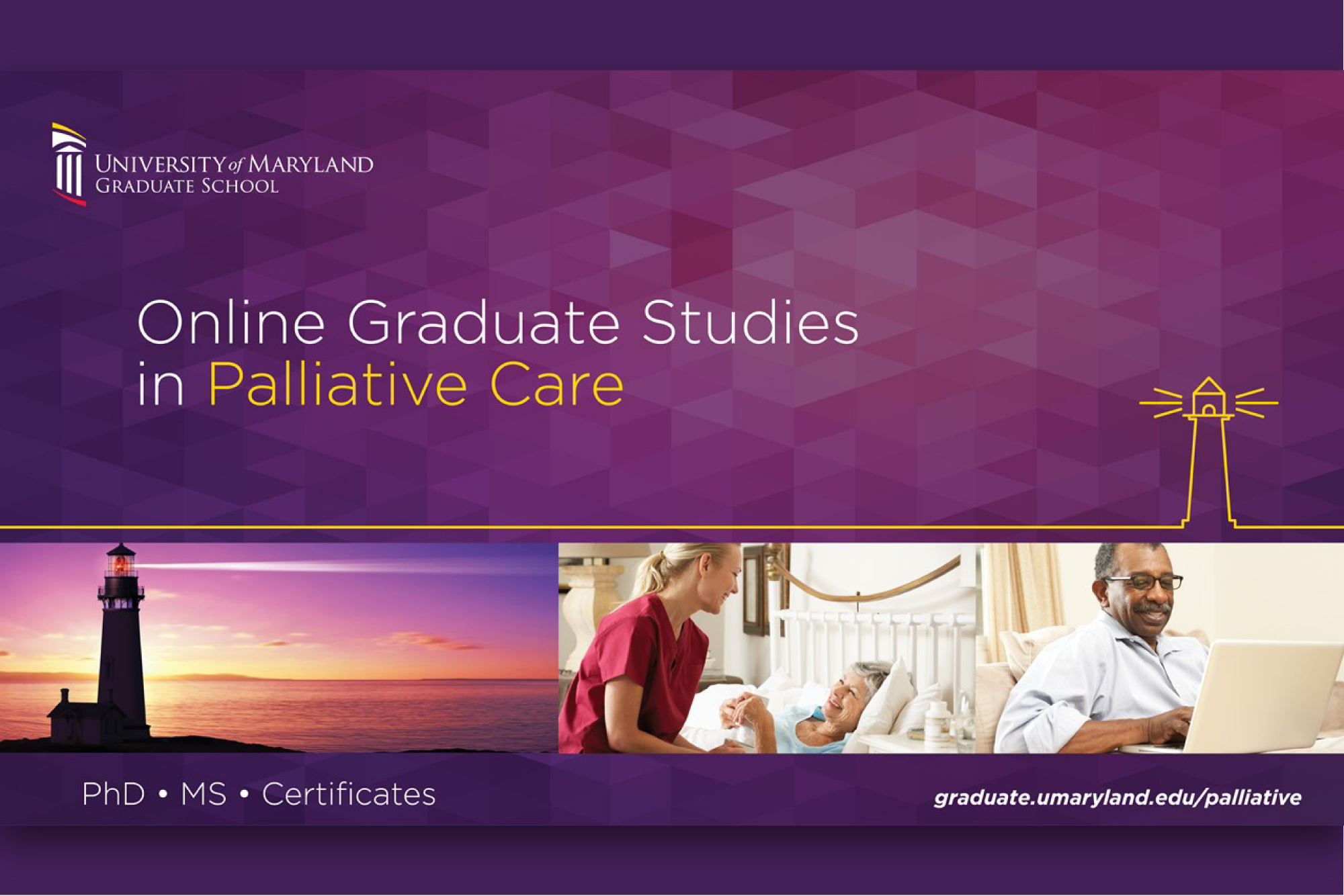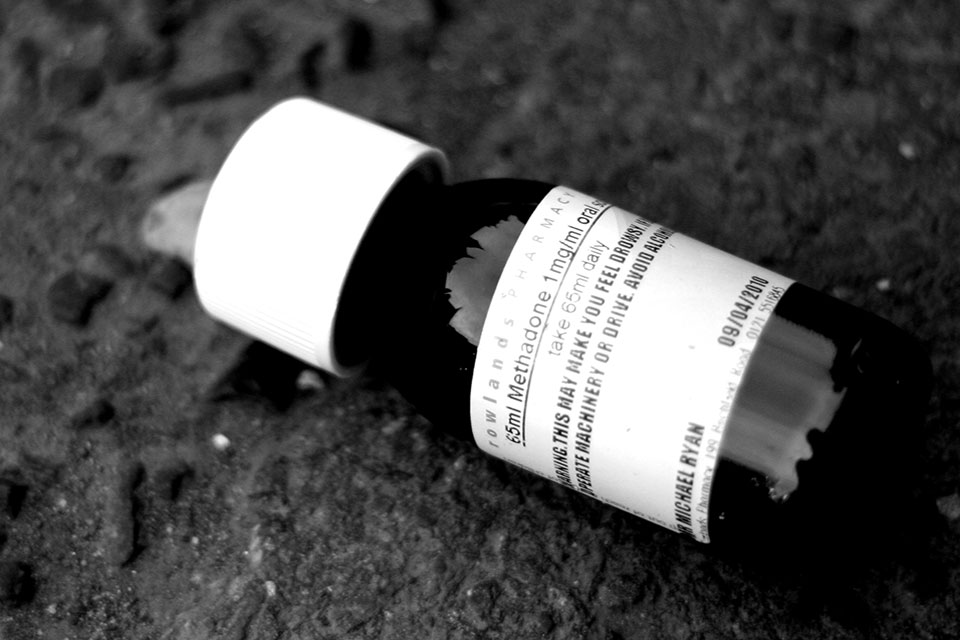Student Pharmacists Advocate in Annapolis for the Pharmacy Profession
Faculty and students from the School of Pharmacy meet with state delegates and senators to advocate for important pharmacy-related legislative issues.

By Malissa Carroll
March 7, 2014
Faculty and students from the University of Maryland School of Pharmacy joined the Maryland Pharmacy Coalition (MPC), University of Maryland Eastern Shore School of Pharmacy, and Notre Dame of Maryland University School of Pharmacy for MPC’s annual Legislative Day in Annapolis on Feb. 20, where they advocated for members of the Maryland General Assembly to help pharmacists to assume a greater role as health care providers to improve patients’ quality of health care and reduce costs.
“There are numerous issues that affect pharmacy practice in the state of Maryland for which pharmacists and student pharmacists alike continue to advocate,” says Cherokee Layson-Wolf, PharmD, CGP, BCACP, FAPhA, associate dean for student affairs and associate professor in the Department of Pharmacy Practice and Science (PPS) at the School of Pharmacy. “These issues affect not only our ability to practice at the top of our license, but also our ability to serve patients. Legislative Day helps student pharmacists better understand their role in the profession and learn that their opinions and their voice impact how their legislators vote.”
While there are currently 21 bills with the potential to impact the pharmacy profession under consideration by members of the Maryland House of Delegates and Senate, the main issue for which faculty and students who attended Legislative Day were strongly advocating was the creation of a statewide task force to study access to pharmacy services.
Speaking about Senate Bill (SB) 257 – a bill supported by the MPC that would create a statewide task force to study access to pharmacy services – third-year student pharmacist and president of the School’s Student Government Association (SGA) Brandon Keith said, “For years, pharmacists have been telling legislators how accessible we are as health care providers. This bill will give us the opportunity to provide concrete evidence that supports that assertion. It will also help us determine where pharmacy services are most needed, and where we should target our interventions.”
One of the most important traditions at the School of Pharmacy, Legislative Day has provided a venue at which faculty and students have advocated for several important pharmacy-related legislative issues in the past, including the construction of the Pharmacy Hall addition, the ability for pharmacists to provide immunizations, and the opportunity for pharmacists to participate in collaborative practice.
Addressing students on the morning of Legislative Day, Chai Wang, PharmD ’11, AE-C, chair of the MPC Legislative Day Subcommittee, said, “The legislation that you will be talking about and fighting for affects your future as a pharmacist. The goal and purpose of this day is to show that we are unified as a profession. It is also an opportunity for you to connect with your local legislators, as well as with fellow pharmacists in the area.”
Also visiting Annapolis on Legislative Day was Mary Lynn McPherson, PharmD, BCPS, CPE, professor and vice chair for education in PPS, who spoke as an expert before the House Medical Marijuana Workgroup on the clinical aspects of this often controversial drug.
Noting the important role played by the endocannabinoid system — which affects almost every organ system in the human body — McPherson educated legislators about marijuana’s mimetic properties. “There are a number of mimetic drugs that are currently available to patients. These drugs work by mimicking the action of a substance already found in the human body. Marijuana is a cannabinoid-mimetic. It mimics the cannabinoids already present in the body,” she said.
McPherson used her knowledge to transform members of the workgroup into “mini-pharmacists” for the day, explaining that out of the more than 460 active chemicals found in marijuana, health care providers are most interested in the therapeutic properties associated with tetrahydrocannabinol (THC) and cannabidol. She also advocated to allow scientists the opportunity to research the potential therapeutic benefits associated with marijuana, emphasizing that “no drug is a free ride for anyone.”
“Researchers examine the benefits and burdens associated with every new drug that enters the market,” said McPherson. “The same should be true for marijuana. As an adjuvant drug that complements other medications to attack a wide range of symptoms, it may not be an adequate treatment for every disease or every patient, but we need the opportunity to explore where it could best be applied.”
Her presentation was very well-received. “Dr. McPherson was a big hit. Everyone to whom I was able to speak said that she delivered the best presentation they had ever heard on the subject,” said Delegate Dan Morhaim, MD, who asked McPherson to testify before the workgroup.
At the end of the day, the message was clear: pharmacy is unified. Students enjoyed the opportunity to meet with a number of delegates and senators and apply the knowledge learned in the classroom to advocate for their profession. Legislators also appreciated the opportunity to hear from student pharmacists about the issues closest to their hearts.
“It’s great that faculty and students from schools of pharmacy across the state continue to visit us in Annapolis to advocate on behalf of their profession,” said Delegate Keith Haynes, deputy majority whip in the Maryland House of Delegates. “I always enjoy talking with them and encourage them to keep at it. Change happens because people bring these issues to our attention. If these issues are not brought to our attention, nothing will happen. Keep advocating.”



